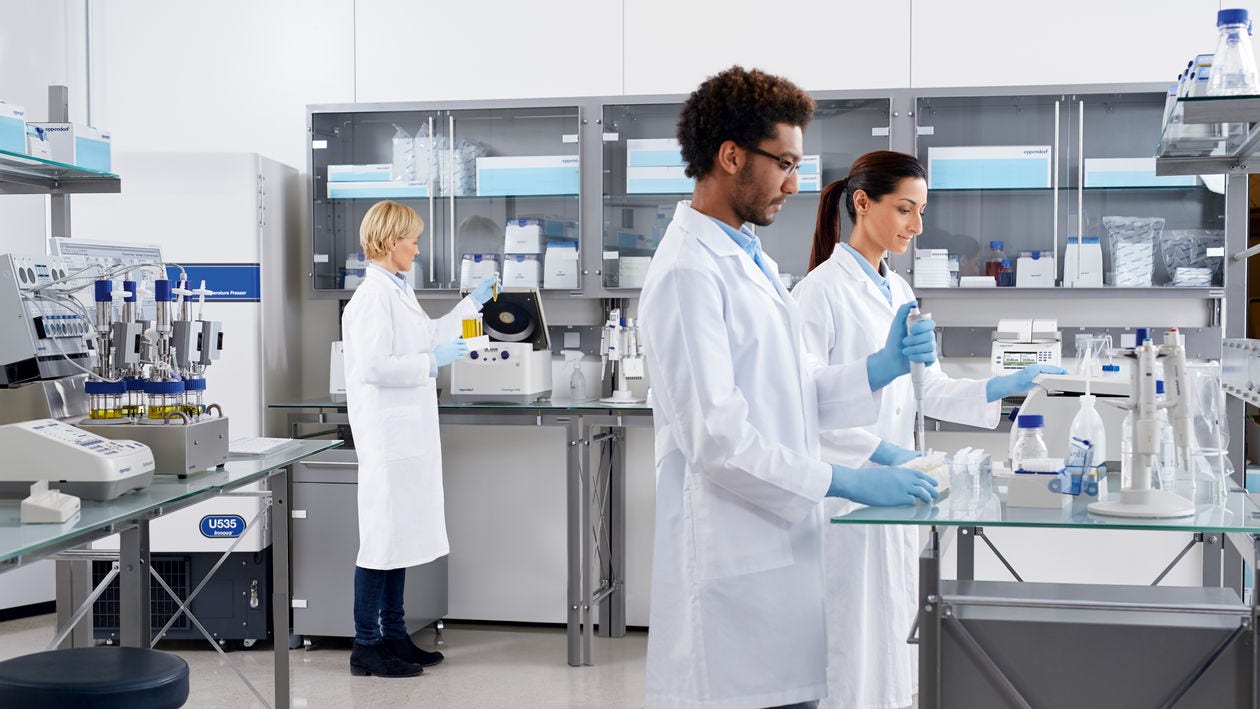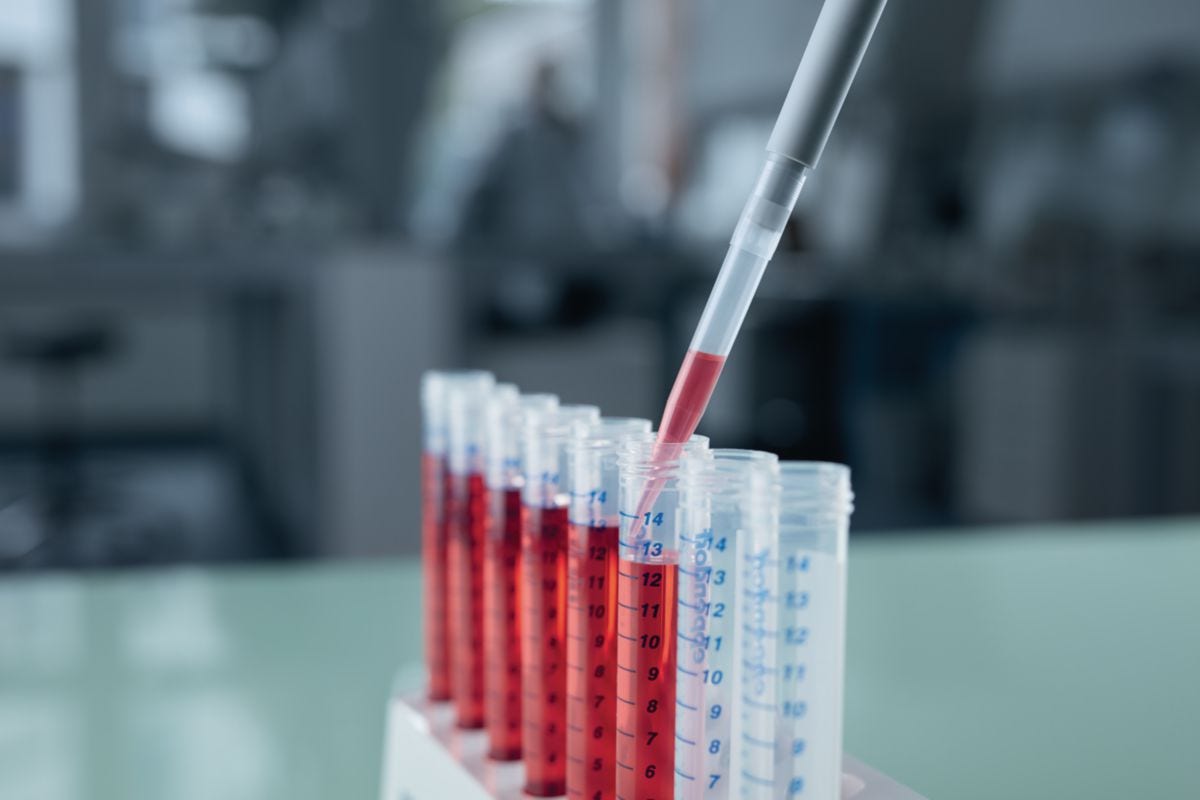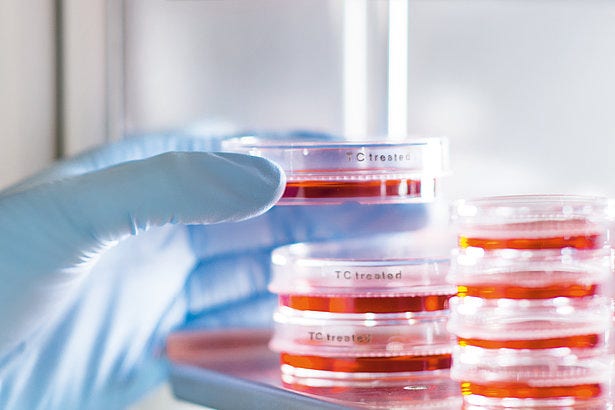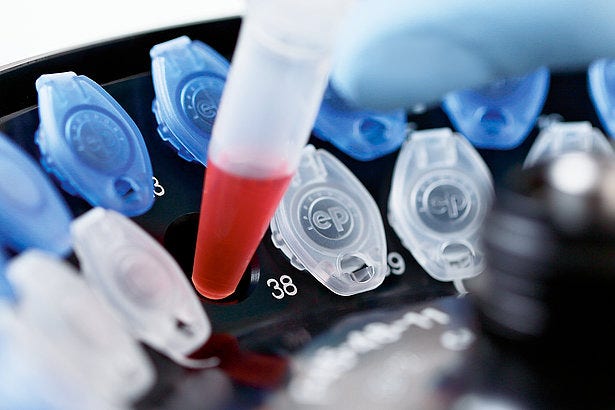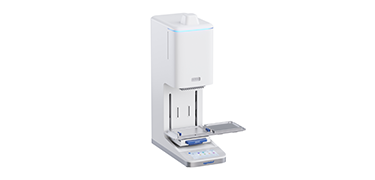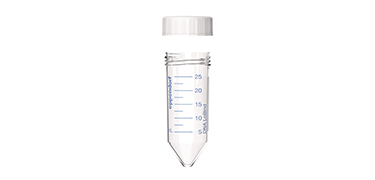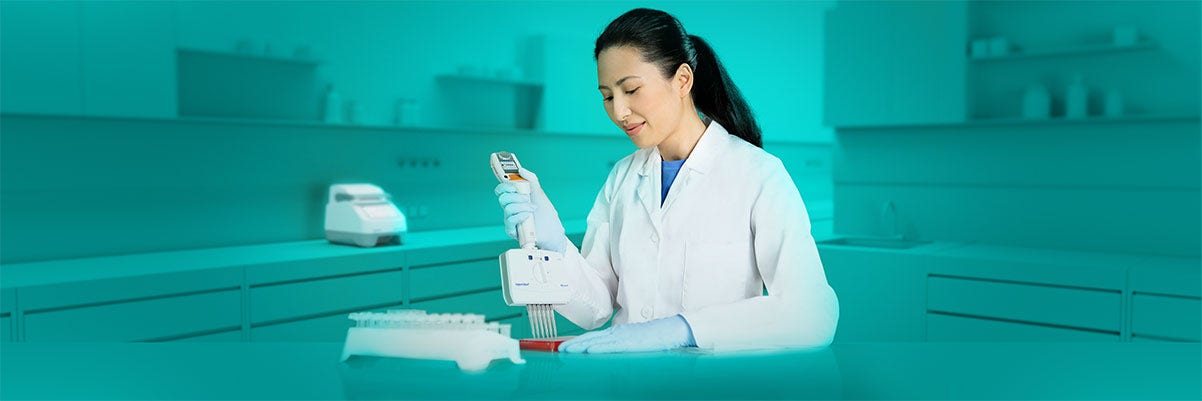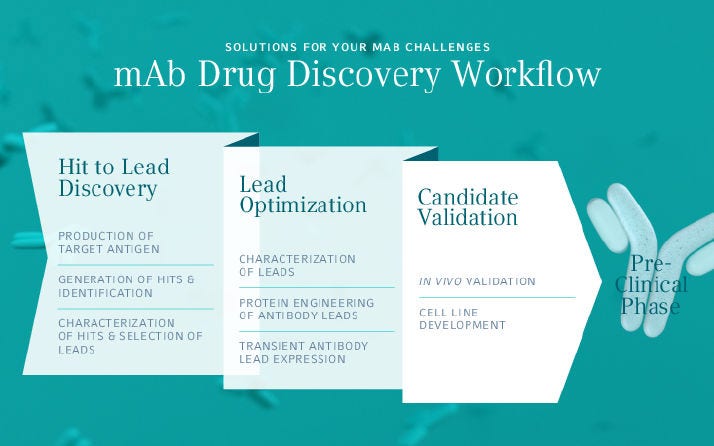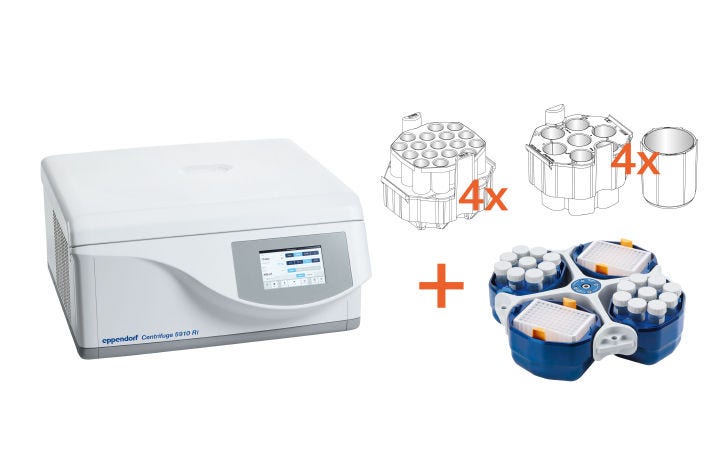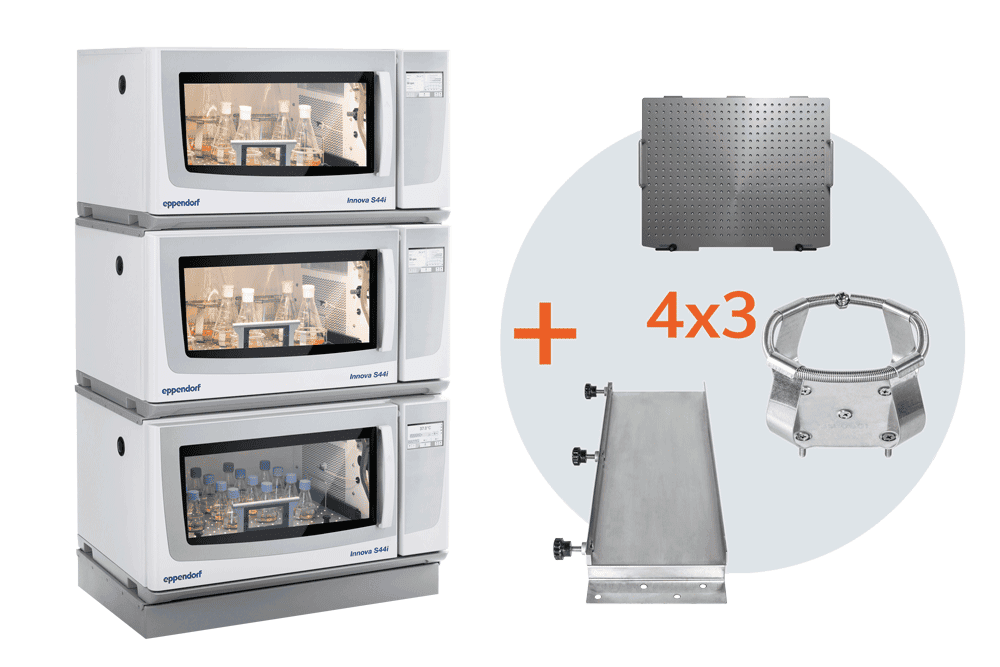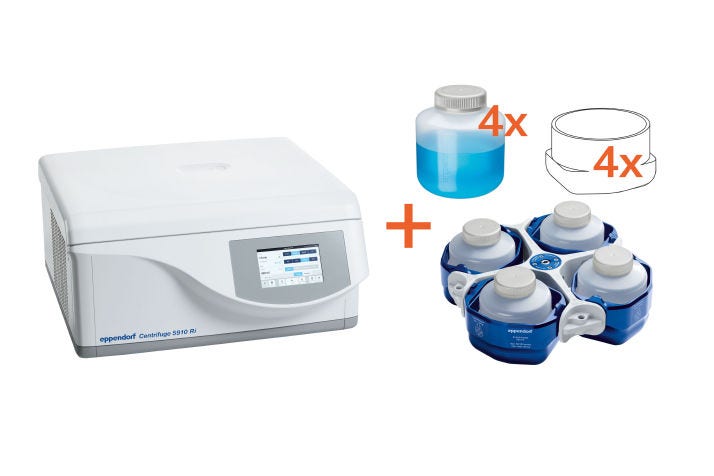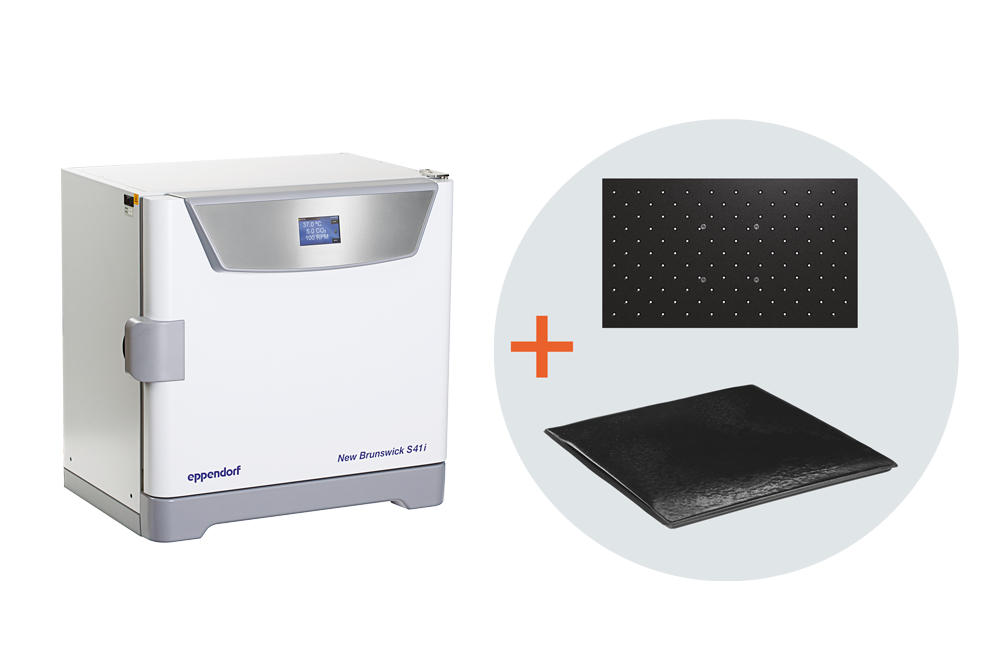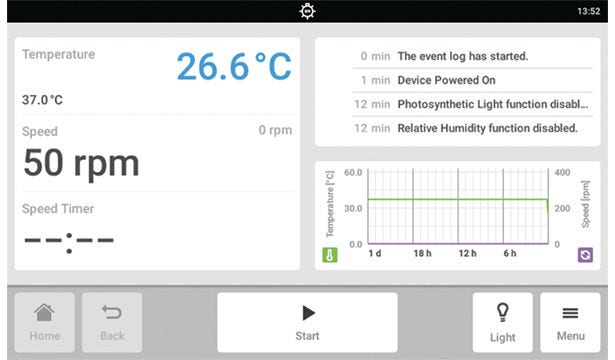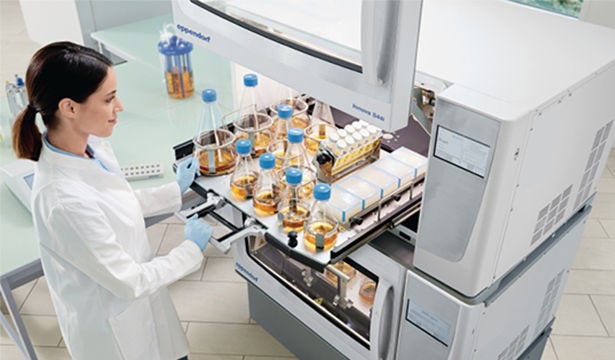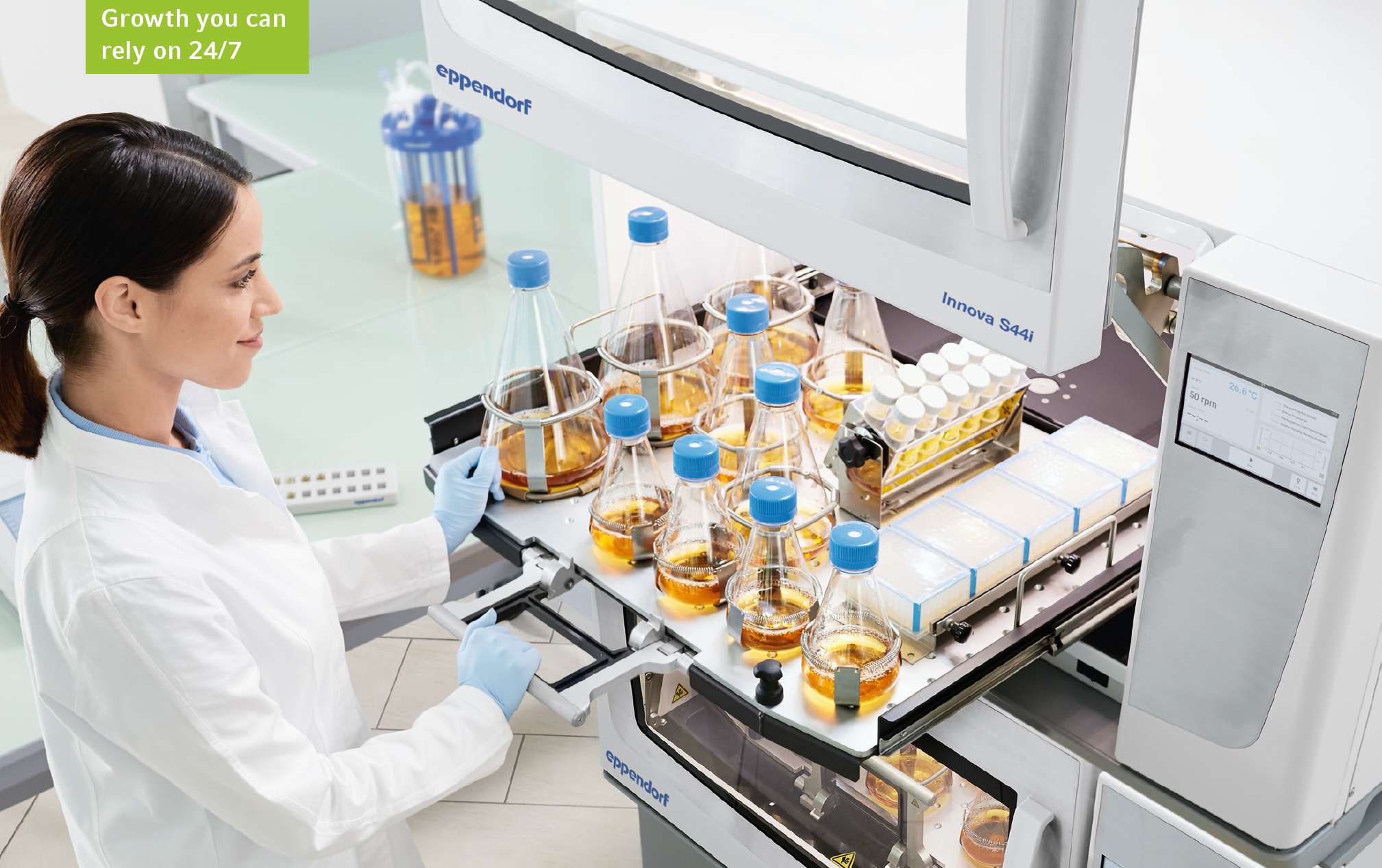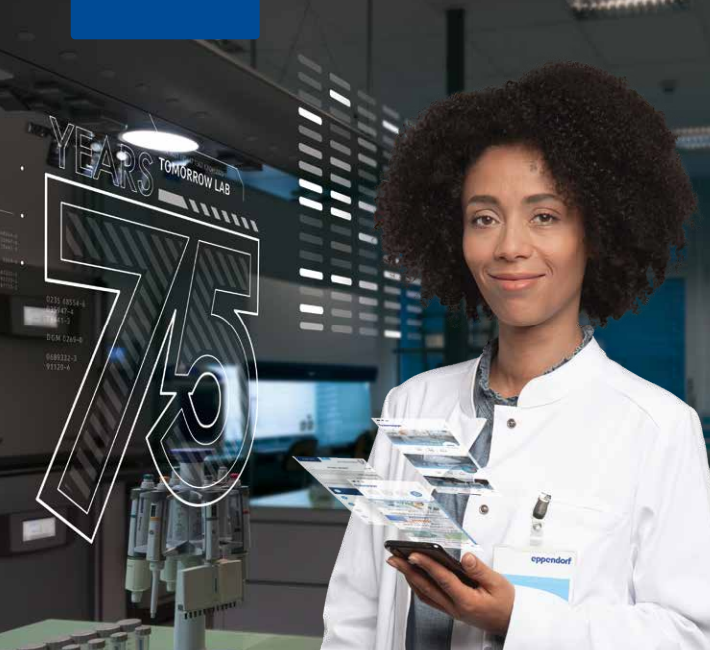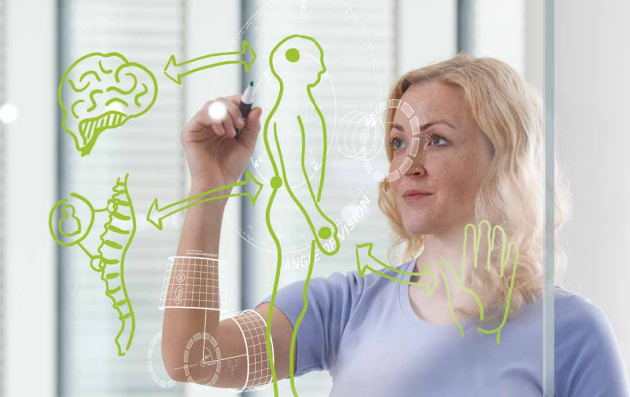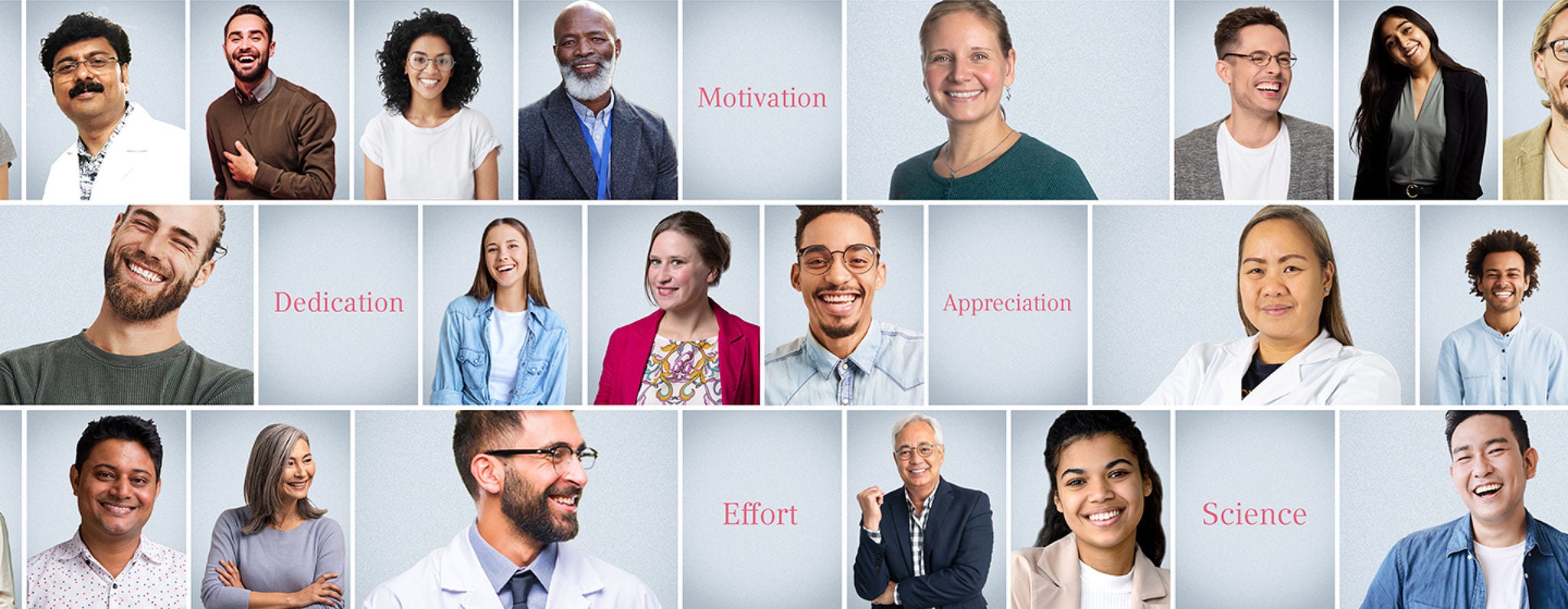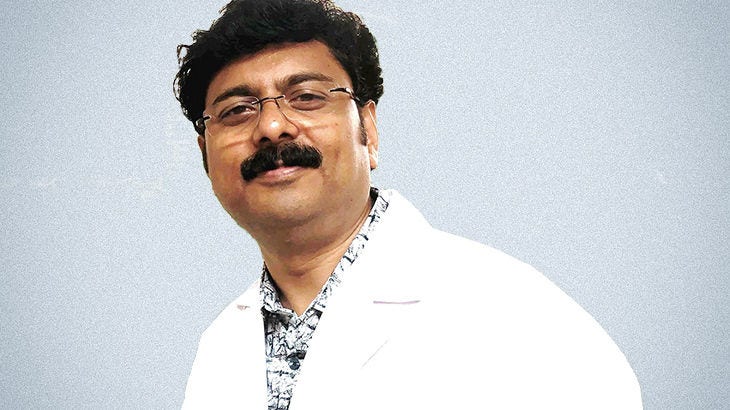Filtered Search Results
Eppendorf™ Eppendorf Quality™ epT.I.P.S.™ Reloads
 Greener Choice Product
Greener Choice Product
This product offers one or more environmental benefits itemized in the U.S. FTC “Green Guides.”
Learn More About the Greener Choice Program

This product offers one or more environmental benefits itemized in the U.S. FTC “Green Guides.”
Learn More About the Greener Choice Program
Eppendorf™ Eppendorf Quality™ epT.I.P.S.™ Reloads are the perfect combination that results in reduced-force tip attachment and ejection with complete sealing.

| Clean Claims | Eppendorf Quality™ |
|---|---|
| Color | Natural |
| Packaging | Reloads |
| Filtered | Non-filtered |
| Autoclavable | Autoclavable |
| Product Line | epT.I.P.S. |
Eppendorf™ DNA LoBind™ Tubes
 Greener Choice Product
Greener Choice Product
This product offers one or more environmental benefits itemized in the U.S. FTC “Green Guides.”
Learn More About the Greener Choice Program

This product offers one or more environmental benefits itemized in the U.S. FTC “Green Guides.”
Learn More About the Greener Choice Program
Unleash the power of precision in your DNA research with Eppendorf DNA LoBind Tubes. Engineered with proprietary LoBind technology, these microcentrifuge tubes redefine sample handling, minimizing the risk of loss and maximizing DNA recovery. Ideal for low-concentration applications, including PCR, qPCR, and DNA sequencing, these tubes ensure accuracy, purity, and optimal yields.

| Purity or Quality Grade | PCR Clean,PCR Clean (Non-sterile) |
|---|---|
| Shape | Cylindrical |
| For Use With | DNA or RNA applications in forensic analysis, microarrays, next generation sequencing, gene cloning and general molecular biology |
| Dnase Free | Yes |
| Color | Clear |
| RNase Free | Yes |
| Bottom Shape | Conical |
| Material | Polypropylene,Polypropylene |
| Sterility | Non-sterile |
| Closure Material | HDPE,Polypropylene |
| Clean Claims | PCR Inhibitor Free |
| Includes | Safe-lock lid |
| Product Type | Microcentrifuge Tube |
| Packaging | 250 Tubes (5 Bags x 50 Tubes) |
| No. per Pack | 250 Pk. |
| Certifications/Compliance | DNA, DNase, RNase, PCR Inhibitors free |
| Closure Type | Snap Cap,Snap Cap |
| Autoclavable | Autoclavable |
Eppendorf™ Polypropylene Protein LoBind Microcentrifuge Tube
 Greener Choice Product
Greener Choice Product
This product offers one or more environmental benefits itemized in the U.S. FTC “Green Guides.”
Learn More About the Greener Choice Program

This product offers one or more environmental benefits itemized in the U.S. FTC “Green Guides.”
Learn More About the Greener Choice Program
Store peptide, antibody or virus samples in these LoBind microcentrifuge tubes. Eppendorf™ Polypropylene Protein LoBind Microcentrifuge Tubes are ideal for work in protein research, mass spectrometry and protein array sample preparation.

| Material | Polypropylene |
|---|---|
| No. per Pack | 100 Tubes (2 bags of 50) |
| For Use With (Application) | Protein LoBind consumables are best suited for work in protein research, mass spectrometry, protein array sample preparation, and storage of peptide, antibody or virus samples |
| Sterility | PCR Clean |
| Closure Material | Polypropylene |
Eppendorf™ Polypropylene Graduated Microtubes
 Greener Choice Product
Greener Choice Product
This product offers one or more environmental benefits itemized in the U.S. FTC “Green Guides.”
Learn More About the Greener Choice Program

This product offers one or more environmental benefits itemized in the U.S. FTC “Green Guides.”
Learn More About the Greener Choice Program
Use these tubes for safe handling of valuable and toxic samples as well as radioactive substances. Eppendorf™ Polypropylene Graduated Microtubes feature a hinged lid with a small hook that clips around the rim of the tube.

| Graduated | Yes |
|---|---|
| Material | Polypropylene |
| Closure Type | Hinged Snap Cap |
| Autoclavable | Autoclavable |
Eppendorf™ Combitips™ Advanced Tips for Multipette™ Multi-dispensers - Eppendorf Quality
 Greener Choice Product
Greener Choice Product
This product offers one or more environmental benefits itemized in the U.S. FTC “Green Guides.”
Learn More About the Greener Choice Program

This product offers one or more environmental benefits itemized in the U.S. FTC “Green Guides.”
Learn More About the Greener Choice Program
Eppendorf's consumable of choice for all Eppendorf Multipette™ multi-dispensers. Available in 9 volume sizes (0.1 to 50 mL), Combitips advanced in 'Eppendorf Quality' dispense in increments as low as 100 mL and are ideally suited for a variety of standard lab applications. Also available in purity grades PCR clean, Biopur™ or Forensic DNA Grade.

| Disposable | Single-use |
|---|---|
| Clean Claims | Eppendorf Quality (Non-sterile) |
| Tip Style | Extended Length,Positive Displacement |
| Format | Bulk, Bagged |
| Product Type | Pipette Tips |
| Color | Colorless |
| Packaging | 100 Pk. (4 Bags x 25 Pk.) |
| Graduated | Yes |
| Material | Polypropylene |
| Autoclavable | Not Autoclavable |
| Fit for Purpose | Certified Quality |
| Sterility | Non-sterile |
| Product Line | CombiTips Advanced |
Eppendorf™ Tubes™ 5.0 mL
 Greener Choice Product
Greener Choice Product
This product offers one or more environmental benefits itemized in the U.S. FTC “Green Guides.”
Learn More About the Greener Choice Program

This product offers one or more environmental benefits itemized in the U.S. FTC “Green Guides.”
Learn More About the Greener Choice Program
Use these tubes, available with screw cap or snap cap, for the simple and safe processing of sample volumes up to 5.0mL. Eppendorf Tubes™ are ideal for working with medium–sized sample volumes. Available in Amber for light-sensitive samples.

Eppendorf™ epT.I.P.S.™ Standard Pipette Tips
 Greener Choice Product
Greener Choice Product
This product offers one or more environmental benefits itemized in the U.S. FTC “Green Guides.”
Learn More About the Greener Choice Program

This product offers one or more environmental benefits itemized in the U.S. FTC “Green Guides.”
Learn More About the Greener Choice Program
Use these universal pipette tips with a wide variety of pipette models. Eppendorf™ epT.I.P.S.™ Standard Pipettor Tips feature optimal wetting properties, high transparency and special, certified purity grades.

| Tip Style | Universal |
|---|---|
| Format | Bulk |
| For Use With (Equipment) | Eppendorf Pipetter |
| Product Type | Pipette Tips |
| Graduated | Yes |
| Compatibility | Universal |
| Autoclavable | Autoclavable |
| Graduations | Fine |
| Product Line | epT.I.P.S. |
Eppendorf™ ep Dualfilter T.I.P.S.™ Racks - Filter Pipette Tips
 SureTRACE
SureTRACE
Supports traceability with guaranteed access to certificates and proactive change notifications.
Learn More
 Greener Choice Product
Greener Choice Product
This product offers one or more environmental benefits itemized in the U.S. FTC “Green Guides.”
Learn More About the Greener Choice Program

Supports traceability with guaranteed access to certificates and proactive change notifications.
Learn More

This product offers one or more environmental benefits itemized in the U.S. FTC “Green Guides.”
Learn More About the Greener Choice Program
Eppendorf ep Dualfilter T.I.P.S.™ Racks offer 'PCR clean and Sterile' grade filter pipette tips, providing dual-layer protection against contamination for critical lab applications, ensuring precision, reliability, and hygiene in high-stakes environments

| Format | Rack |
|---|---|
| Color | Colorless |
| Filtered | Filtered |
Eppendorf™ PCR Clean Colorless Safe-Lock Centrifuge Tubes
 Greener Choice Product
Greener Choice Product
This product offers one or more environmental benefits itemized in the U.S. FTC “Green Guides.”
Learn More About the Greener Choice Program

This product offers one or more environmental benefits itemized in the U.S. FTC “Green Guides.”
Learn More About the Greener Choice Program
Protect your samples with these centrifuge tubes. Eppendorf™ PCR Clean Colorless Safe-Lock Centrifuge Tubes feature a hinged Eppendorf Safe–Lock lid for outstanding protection against unintentional opening during incubation and storage.

| Product Type | Centrifuge Tube |
|---|---|
| Color | Natural |
| Material | Polypropylene |
| Autoclavable | Autoclavable |
| Closure Included | Yes |
Eppendorf™ Tubes™ 3810X
 Greener Choice Product
Greener Choice Product
This product offers one or more environmental benefits itemized in the U.S. FTC “Green Guides.”
Learn More About the Greener Choice Program

This product offers one or more environmental benefits itemized in the U.S. FTC “Green Guides.”
Learn More About the Greener Choice Program
The easy-to-open, securely closing, Eppendorf Tubes™ 3810X offers comfort and dependability for sample preparation, centrifugation, and storage. One vessel for all applications in molecular biology, chemistry, and biochemistry. Safer than ever: designed for centrifugation up to 30,000 x g.

| Shape | Cylindrical |
|---|---|
| Capacity (English) | 0.05 oz. |
| Capacity (Metric) | 1.5 mL |
| Bottom Shape | Conical |
| Material | Polypropylene |
| Max. RCF | 30,000 x g |
| Sterility | Non-sterile |
| Product Type | Microcentrifuge Tube |
| Graduated | Yes |
| Temperature Range (English) | -122.8°F to +212°F |
| No. per Pack | 1000 Pk. |
| Closure Type | Flat Frost Lid |
| Temperature Range (Metric) | -86°C to +100°C |
| Autoclavable | Autoclavable |
Eppendorf™ DNA LoBind™ Tubes
 Greener Choice Product
Greener Choice Product
This product offers one or more environmental benefits itemized in the U.S. FTC “Green Guides.”
Learn More About the Greener Choice Program

This product offers one or more environmental benefits itemized in the U.S. FTC “Green Guides.”
Learn More About the Greener Choice Program
Unleash the power of precision in your DNA research with Eppendorf DNA LoBind Tubes. Engineered with proprietary LoBind technology, these microcentrifuge tubes redefine sample handling, minimizing the risk of loss and maximizing DNA recovery. Ideal for low-concentration applications, including PCR, qPCR, and DNA sequencing, these tubes ensure accuracy, purity, and optimal yields.

| Clean Claims | PCR Clean |
|---|---|
| Purity or Quality Grade | PCR Clean (Non-sterile) |
| Shape | Cylindrical |
| Material | Polypropylene |
| Sterility | Non-sterile |
Eppendorf™ Tubes™ with Snap Cap 5.0 mL - Microtube
 Greener Choice Product
Greener Choice Product
This product offers one or more environmental benefits itemized in the U.S. FTC “Green Guides.”
Learn More About the Greener Choice Program

This product offers one or more environmental benefits itemized in the U.S. FTC “Green Guides.”
Learn More About the Greener Choice Program
Eppendorf Tubes™ with snap caps are your ideal choice when working with medium-sized sample volumes (0.5 mL to 5.0 mL). Designed for user-friendly handling, broad temperature ranges, centrifugation safety (up to 25,000 x g), and sample recovery.

| Shape | Cylindrical |
|---|---|
| Diameter (Metric) | 17 mm |
| Capacity (Metric) | 5 mL |
| Bottom Shape | Conical |
| Material | Polypropylene |
| Max. RCF | 25,000 x g |
| Closure Type | Snap Cap |
| Autoclavable | Autoclavable |
| Closure Material | Polypropylene |
Eppendorf™ Combitips Advanced™ Biopur™ Pipette Tips
 Greener Choice Product
Greener Choice Product
This product offers one or more environmental benefits itemized in the U.S. FTC “Green Guides.”
Learn More About the Greener Choice Program

This product offers one or more environmental benefits itemized in the U.S. FTC “Green Guides.”
Learn More About the Greener Choice Program
Meet the increased requirements of a modern laboratory with these pipetter tips. Eppendorf™ Combitips Advanced™ Biopur™ Pipetter Tips make working with radioactive, aggressive or toxic materials safer. Hermetically sealed piston prevents aerosol contamination.

| Disposable | Single-use |
|---|---|
| Tip Style | Extended Length,Positive Displacement |
| Color | Colorless |
| Material | Polypropylene |
| Fit for Purpose | Sterile and PCR Ready |
| Sterility | Sterile |
| Clean Claims | Biopur™ (Sterile) |
| Format | Individually Wrapped |
| For Use With (Equipment) | Eppendorf Multipette |
| Product Type | Pipette Tips |
| Packaging | 100 Pk., Individually Blister-wrapped |
| Graduated | Yes |
| Autoclavable | Not Autoclavable |
| Product Line | CombiTips Advanced |
Eppendorf™ Protein LoBind™ Tubes
 Greener Choice Product
Greener Choice Product
This product offers one or more environmental benefits itemized in the U.S. FTC “Green Guides.”
Learn More About the Greener Choice Program

This product offers one or more environmental benefits itemized in the U.S. FTC “Green Guides.”
Learn More About the Greener Choice Program
Engineered to minimize sample binding and elevate recovery, Eppendorf™ Protein LoBind™ Tubes safeguard your valuable proteins during processing. With cutting-edge LoBind technology, ensure optimal yields for your Western blotting, mass spectrometry, and protein purification applications.

| Purity or Quality Grade | PCR Clean (Non-sterile) |
|---|---|
| Product Type | Microcentrifuge Tube (PCR Clean, Protein LoBind) |
| Bottom Shape | Conical |
| Material | Polypropylene |
| Sterility | Non-sterile |
| Closure Material | HDPE |
Eppendorf Research™ plus, Mechanical Single-Channel Pipettes
 Greener Choice Product
Greener Choice Product
This product offers one or more environmental benefits itemized in the U.S. FTC “Green Guides.”
Learn More About the Greener Choice Program

This product offers one or more environmental benefits itemized in the U.S. FTC “Green Guides.”
Learn More About the Greener Choice Program
Adapt for specific liquids or other external conditions with these ultra-light fully autoclavable pipettes. Pipettes feature a spring loaded tip cone, a secondary adjustment option and an improved volume display.

| Finger Style | Ergonomic |
|---|---|
| Type | Single-Channel Adjustable Volume Pipettes |
| Number of Channels | 1 |
| Autoclavable | Autoclavable |
| Display | Digital |
| Product Line | Research Plus |
